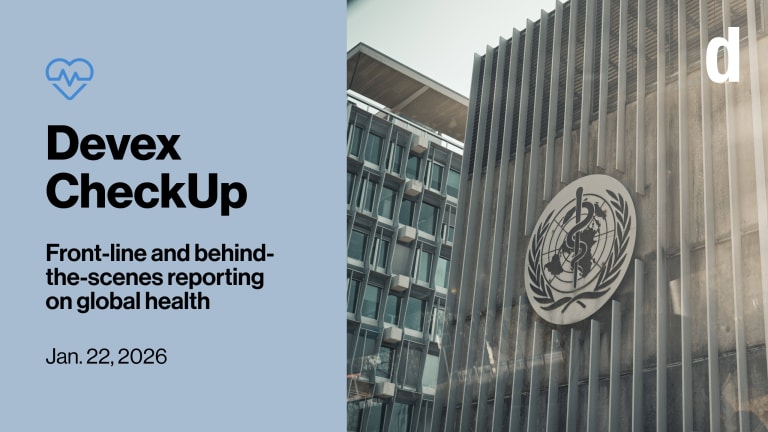
MANILA — The Ebola outbreak in the Democratic Republic of the Congo is still a public health emergency — despite a decline in reported cases, the World Health Organization has announced.
The Ebola emergency committee recommended to uphold the Public Health Emergency of International Concern status for Ebola, which will extend for another three months, after a meeting on Friday in Geneva. The PHEIC declaration, first made in July, has become a source of ongoing debate in the global health community. Some experts expected it would inspire much-needed funding for the response, but three months later, the disbursement of promised dollars remains slow.
“This outbreak is like a marathon, and the last mile is always the most difficult.”
— Robert Steffen, chair of the Ebola emergency committee, World Health OrganizationThere have been 15 confirmed cases of Ebola reported in North Kivu and Ituri provinces in the past week. But this encouraging trend should be interpreted with caution, said WHO Director-General Tedros Adhanom Ghebreyesus during a press briefing on Friday following a meeting of the emergency committee, which advises the WHO chief on the Ebola outbreak. This is the fifth time the committee has convened for the outbreak in DRC.
“We must treat every case as if it's the first because every single case has the potential to spark a new and bigger outbreak,” Tedros said, noting the risks of Ebola spreading within DRC and neighboring countries “remain very high.”
More on Ebola:
► Tanzania continues to dodge WHO recommendations on Ebola
► Ebola in Tanzania? A question on global governance for infectious diseases
► Breaking: WHO declares global public health emergency in DRC Ebola outbreak
The WHO chief has refrained from suggesting a timeline for when the outbreak will potentially end, stressing instead that the area remains “very volatile.”
The decline in cases should push organizations to scale up their response, according to Rolland Kaya, MSF’s humanitarian representative for East and Central Africa. He spoke at a separate briefing in Nairobi on Friday.
“It doesn’t mean that it’s over. It means that we have to reinforce even more our response because we have seen in the past in places where we had no cases or the cases were low, and then it came back again,” Kaya said.
Recent investigation in Mandima, which has been a hot spot of Ebola virus activity, revealed the population — including local health workers — have a poor understanding of the disease’s symptoms and transmission. Mistrust about the origins of the disease and reasons to get vaccinated abound, which may impact case reporting and response engagement, according to the WHO’s latest Ebola disease outbreak update.
Less than half of respondents in the area indicated they would call a hotline if a community member was suspected of Ebola, and less than half understood the functions of different response interventions, according to the update.
Outstanding concerns
Robert Steffen, chair of the Ebola emergency committee, raised concerns at Friday’s press briefing about the inadequate funding the response has received to date, as well as security issues in the outbreak hotspots of Mandima and Mombasa.
Steffen said that the committee’s recommendations have been adapted slightly to include establishing community awareness in areas where there’s been no Ebola disease transmission to date. In addition, the committee recommended accelerating action for active surveillance for cases and unexplained deaths in all areas.
“The Ebola emergency committee recommended that the PHEIC be maintained … because the battle is not over yet. And as it was alluded to, we must remain cautious as there might be setbacks,” Steffen said. “This outbreak is like a marathon, and the last mile is always the most difficult.”
But some stakeholders question what impact the PHEIC declaration has made in the current outbreak — and what potential impact it will have as the WHO maintains this status for the next three months.
Steffen said there had already been a decrease in cases before the PHEIC was declared last July.
Mike Ryan, executive director of the WHO health emergencies program, meanwhile, suggested that having the PHEIC in place hasn’t helped in mobilizing necessary funding for the outbreak.
“The declaration of the PHEIC facilitated and supported governments in accelerating their preparedness activities … In that time the [Strategic Response Plan 4] calls for a $68 million investment, which seems like a very small investment across nine countries for preparedness. Of that, $4.5 million is funded as we speak, and we're four months into SRP4. So to argue that the declaration of the PHEIC has in some way magically generated millions of dollars would be a massive overestimate,” he said.
The response requires close to $400 million in funding, Ryan said. However only $126 million of that amount has been received to date by various agencies involved in the response. Of the $66 million needed for preparedness efforts in neighboring countries of DRC, $4.5 million has been received.
The organization is still waiting for disbursements from pledges made to the response, and is in regular communication with the World Bank on the issue, Ryan said.
“A lot of funding has been pledged in the system and in fact, our biggest problem right now is not the pledging of money. It has been the disbursement of those funds,” he said.
“We've been working very closely with the World Bank and have had teleconferences with them as late as last night to look at how we can accelerate the disbursement of those funds from pledging agencies,” he added.
Tedros on Friday reiterated the need to invest in preparedness: “The problem here is the world responds when there is panic, and I think with the current situation, people don't see the sense of urgency. But the most worrisome part is, we are not ready as a global community, we are not ready to invest in preparedness,” he said.









